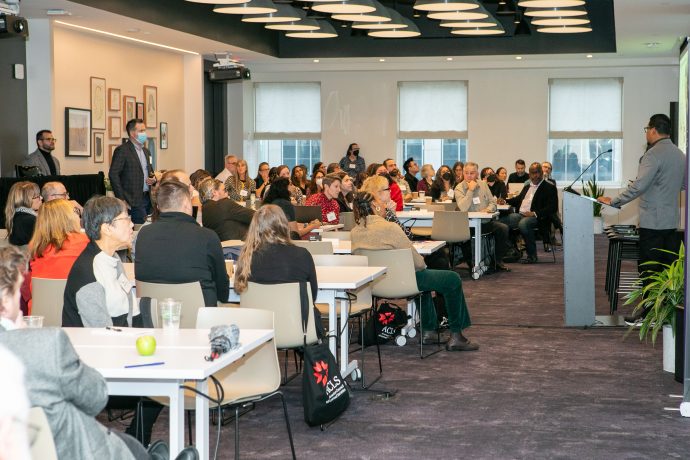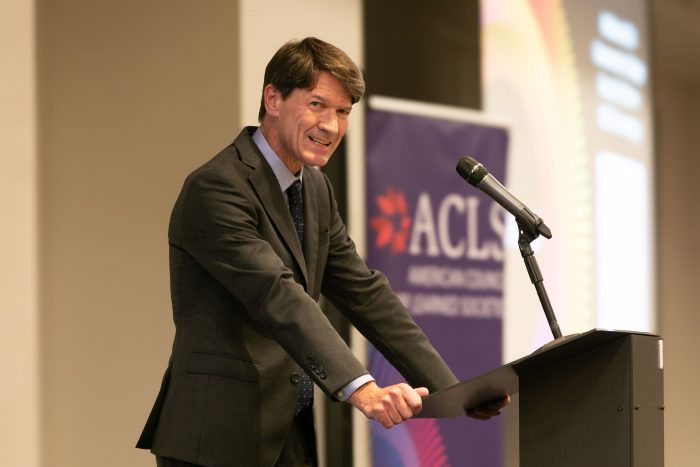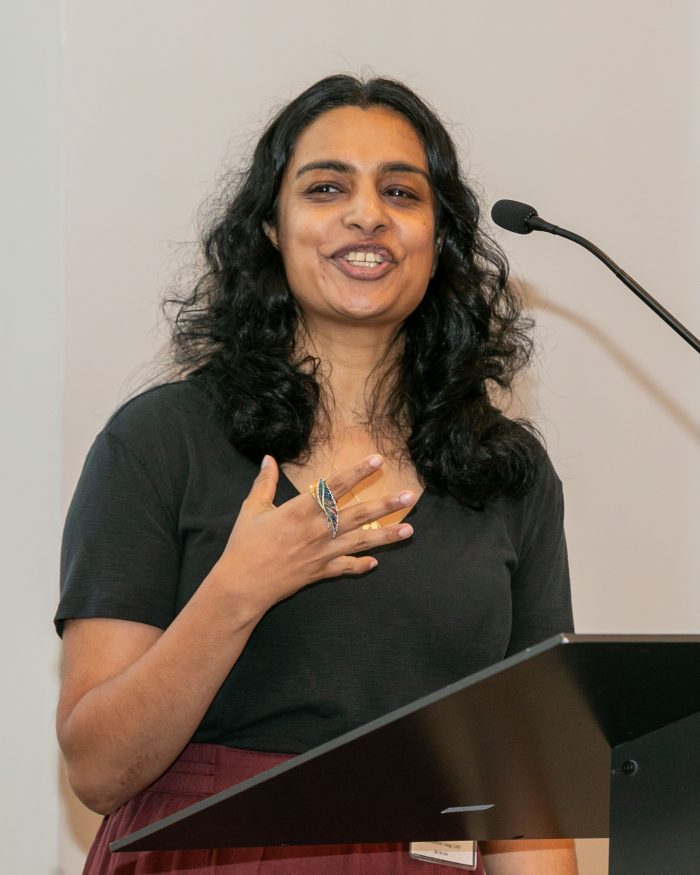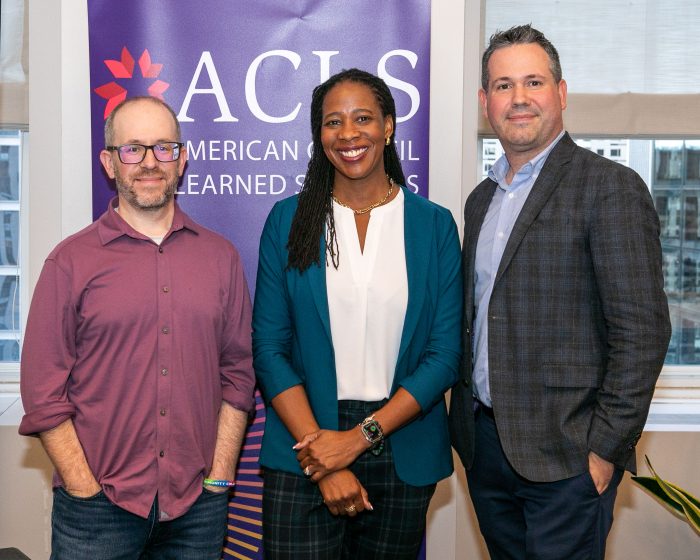2023 Community College Faculty Convening

Awardees from all four cohorts of the Mellon/ACLS Community College Fellows Program (CCFF) gathered for the first time since the program launched in 2019. From October 6 through 8, 2023, ACLS hosted 90 of the program’s 110 fellows for a weekend-long convening in New York City designed for them to share their research, network with peers, and continue an important dialogue with ACLS about what is needed in efforts to support community college faculty in the humanities and interpretive social sciences.
“Community colleges are a critical layer of the higher education ecosystem in general and of the academic humanities and social sciences in particular,” said John Paul Christy, senior director of US Programs at ACLS. “Community colleges have long attracted faculty with advanced disciplinary training, a strong interest in teaching, and a commitment to equity and access. These teacher-scholars have extensive research agendas and deep subject matter expertise to share with their students, and this convening celebrates their innovative scholarly work.”

The convening opened with a welcome address by Kenneth Adams, president of LaGuardia Community College, part of the City University of New York (CUNY). Adams proudly noted that CCFF had supported 40 fellows from the CUNY system including 11 from LaGuardia, each of whom he recognized from the stage.
“The humanities and social sciences offer pathways for learning, discovery, and self-awareness,” Adams said and encouraged community colleges to better highlight and market the accomplishments of faculty in these departments, citing the CCFF award as proof of the quality and sophistication of their research.

The event featured more than 25 presentations on fellows’ research projects including work featuring collaborative practices, community-engaged scholarship, student-centered research, digital scholarship, book publishing, navigating the research landscape, and more. ACLS President Joy Connolly noted that the presenters and all of the CCFF awardees were “changing the way we think about liberal arts education through their work.”
Among the awardees attending the convening was Prithi Kanakamedala F’21 of Bronx Community College-CUNY. She has been involved in a publicly engaged project with the Brooklyn Historical Society (now the Center for Brooklyn History at Brooklyn Public Library) tracing Brooklyn’s abolitionist movement and centering on the untold stories of ordinary New Yorkers during that period. The project has spanned more than 15 years and included a number of deliverables including a public exhibit, a theater piece, and a curriculum for K-8 students. The CCFF award allowed her to start another important piece of the project: a book written for general audiences. Currently in production with New York University Press, the book will be available in September 2024. “CCFF was one of the only funders that allowed me the time and space to think about the process of writing this important book.”
Several scholars presented projects that engaged undergraduates in reflection and creative production based in humanities research. Lucha Arévalo F’22, associate professor of Chicano/a/x studies at Río Hondo College in Whittier, CA, used the ACLS award to expand the reach and impact of a course on children’s literature. One of the capstone activities of the course asks students to draw on ethnic studies approaches as they conceive, write, and digitally publish their own children’s book, many of which then become part of the children’s reading room at Rio Hondo’s public library. Arévalo’s project is chronicled in the forthcoming article “Nuestros Cuentos Cuentan: Storytelling as a Healing Modality in a Community College Classroom” in Pedagogies for Creative Justice (December 2023).

Other highlights included a roundtable discussion on ways academic societies can better engage with community college faculty with James Grossman, executive director of the American Historical Association, Paula Krebs, executive director of the Modern Language Association, and Jane Zunkel, president of the Pacific-Western Division of the Community College Humanities Association; and a discussion about peer review and approaches to seeking external funding with Brian Stipelman, associate vice president and dean of Arts and Sciences at Frederick Community College, and Chae Sweet, vice president of Academic Affairs at Montgomery County Community College.
The October 2023 convening is part of a series of engagements designed to help ACLS better understand current conditions for the humanities and interpretive social sciences at two-year and other teaching-intensive institutions, and to develop opportunities that lift up work that community college faculty are uniquely poised to accomplish.

